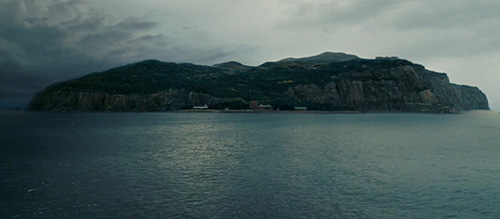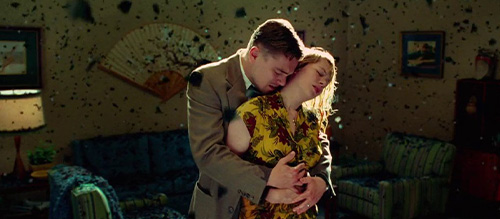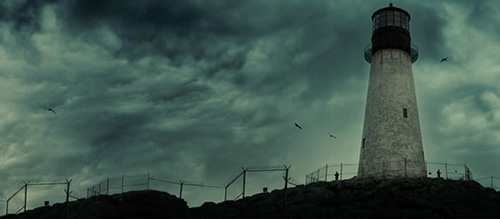10 Years of Shutter Island – Flawless Directorial Command and Mental Health Examination
With directorial master Martin Scorsese’s most recent venture The Irishman receiving prestigious awards and nominations left, right and centre; it is vital to look at one of his most memorable films in the wake of its tenth anniversary, the timelessly crafted Shutter Island; an examination of mental health that feels somehow more relevant today than when it was first released.
Following its theatrical debut on 19th February 2010, Shutter Island was met with mixed reviews from critics and audiences alike, although patterns did emerge soon after that illustrated a more distinct fondness for the film – the picture now being an 8.1 rating on IMDb, placing it on the list of Top 250 Highest-Rated Films.
Shutter Island sees Scorsese take on a slightly different from usual directorial perspective with the film’s thrilling horror elements, seemingly leaning towards the sensibilities of his 1991 film Cape Fear than the more widely known Goodfellas (1990). Nonetheless, the 20-year gap between his famous works certainly doesn’t cause one to outshine the other; Scorsese’s adaptation of Dennis Lehane’s 2003 novel still ringing true as an arguably equally as frightening psychological thriller, connecting with the audiences of 2020 through its combination of distressing themes and a killer cast.
Shutter Island heavily carries conspicuous notions of child murder, severe mental illness, isolation and war; issues that continue to resonate with and distress today’s audiences. The serial killer, murder mystery, true crime-loving viewers of the 21st century will note that Shutter Island can fit right back into the popular culture of the present, with even its cast – including Leonardo DiCaprio, Mark Ruffalo, Michelle Williams and Ben Kingsley – remaining steadfast A-listers in the years that have followed.
In many respects, Shutter Island is a perfect example of cinema that film scholars everywhere can connect and engage with. Not only is it directed by one of the world’s most recognised directors, but it also offers exceptional analytical elements that can be explored in great detail.
Teddy’s flashbacks to WWII, for example, present an allusion to the classic style of Film Noir, with inspiration seemingly taken from the works of Hitchcock as well as the likes of Double Indemnity (1944) and The Maltese Falcon (1941). The intriguing flashback scenes incite the film’s setting of post-War 1950s America, while the protruding feelings of loneliness, separation, paranoia and incertitude brought forth by the film’s setting on an imposing but isolated island chime well with the shared societal fears following American conflicts from WWII right up to present day.
Directly, Teddy’s perceived reality is a consequence of his time in the War and his activities following. His reality is seen through rose-tinted glasses compared to his hidden truths which offer him great trauma. The subject of Post-Traumatic Stress Disorder is not directly discussed due to the era in which the film is set, yet it is clear to the spectator what is really happening – PTSD and wider mental illness are topics that are explored greatly in cinema, with recent films such as Birds of Prey, Joker and Glass highlighting the fears surrounding severe mental illness, and in Shutter Island that becomes the directive of its narrative. It’s a prolific theme that has more meaning today than it perhaps did in 2010, but in Shutter Island its combination with the themes of war, nostalgia and American values makes for a much more erratic feeling of unease.
Back in 2010, Roger Ebert shrewdly examined that, “the movie is about atmosphere, ominous portents, the erosion of Teddy’s confidence and even his identity. It’s all done with flawless directorial command.”.
This remains true, and can be identified clearly through the consistently mounting tension and the dreary, ominous music that drives right through the soul of both the film and the viewer. This is, in part, the reason for the film’s success and longevity – these are elements that have not faltered over time and maintain an air of fascination and fear.
The fear and obscurity surrounding the island’s lighthouse creates a centre point for Laeta Kalogridis’ screenplay. It’s as if depravity radiates from the lighthouse, spreading throughout the island like a disease, coming to a head in the penultimate scene revealing Teddy’s hidden secrets. The war in his mind thunders and roars just as the war did ten years before he arrived on the island. Bluntly explained by Dr. Cawley (Kingsley), the audience sees Teddy spiralling out of his survival mode, judged and penalised by healthcare professionals insisting that they’re going round in circles with Teddy’s fantasy life. This in itself is an inherent characteristic of so many stories from people who have attempted to seek help for their mental health.
This final reminder in Shutter Island of the stigma hanging over mental illness pulls together the entirety of the previous two hours of film. The dread, the trauma and the building number of questions can all be put to bed now that Teddy understands. Or so we think. Teddy concludes the film having seemingly regressed into his rose-tinted survival state, continuing the cycle that was apparent throughout the film; the radiating depravity thus continuous, with DiCaprio’s ending dialogue, “which would be worse: to live as a monster or to die as a good man?”
The story of Teddy Daniels is one that has urged die-hard fans to rewatch over and over again. Shutter Island’s ambiguous ending gave viewers a reason to mull over the story for a time, coming up with various interpretations and plot twists, and leaving room for further exploration. Ten years on, it is still unclear whether Teddy was the victim or the cause, which elements of the story were the truth, and what really went on in that lighthouse. Perhaps in another ten years, we will have come to a final conclusion and the case of Shutter Island will, at last, be solved.




